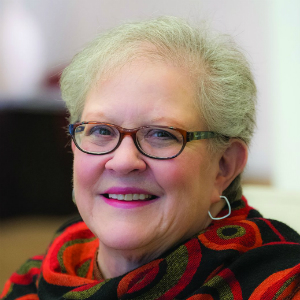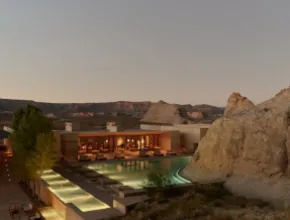I’ve been involved in the meetings industry for more than 45 years. In all those years, a month hasn’t gone by that the cost of coffee (and AV and other pricing), and service charges and other F&B pricing, hasn’t been raised to me, with great frustration expressed by planners about costs.
We need to better understand all that those who cater events go through in order to make our events memorable, affordable and safe.
So in that spirit, I reached out meetings professionals on both sides of equation—planners and suppliers—to gauge their thoughts about the high cost of F&B at meetings and events.
Their responses reveal cost reduction tips, and also the hope that planners and suppliers can come to an understanding about the challenges faced on each side of the F&B table.
The Planners
- Colleen Bailey, Manager, Meeting Services, Food Marketing Institute
- Marguerite Leishman, Manager, Meetings and Events, National Alliance on Mental Illness
- Kellee O’Reilly, Chief Experience Officer, MonkeyBar Management
The Questions and Responses
1. When planning F&B in a hotel or using an outside caterer, what are your three most important issues?
Bailey:
- Flexibility to work with a trade association that has some sponsors in the food retail arena, in handling donated food items, sampling (no corkage) or establishing corkage in contracts for some sessions, and potential recipes to follow.
- Ability to offer sponsor products at meals if the hotel doesn’t normally offer them on their menus.
- Service and labor: I now see more hotels charging not only bartender fees but also server fees for “x number” for passing hors d’oeuvres.
Leishman:
- Priority No. 1 is the price of meals and service charges. You can’t have one without the other.
- Menu selections have become increasingly important, with more requests for healthier options and specific dietary demands.
- Standard prices such as a gallon of coffee, or a continental breakfast, to gauge costs for other meals.
O’Reilly: Most of our clients are price-sensitive, so price is always a consideration.
That said, I am more compelled by how “contemporary” (or not) a menu seems to be–does it feel like it has been refreshed within the past few years to incorporate food trends. I also always look to note fees applicable to small groups (often 25 or fewer by some hotels) and what the total service charge will be. It has, in some markets, crept up from 18% to 25% in recent years.
2. When budgeting year to year for F&B events, what do you use to guide your budget process?
Bailey: We base budgeting on the last meeting held in a similar format and location and adjust accordingly for service charges and taxes to their menus.
Leishman: I review budgets and actual expenses from the past two to three years. Was I on target with my predictions? Where did I budget poorly? What lessons did I learn (such as our staff requested big breakfasts at our convention, but no one ate them) that I would not repeat?
[Related Content: CBD and Ugly Produce Among Benchmark's 2020 Food Trends]
Were there pop-up meetings not budgeted that I should now include for future meetings?
I meet with any department that will have F&B and discuss their anticipated needs and encourage them to plan early and realistically.
O’Reilly: There hasn’t been a year in recent memory when F&B hasn’t seen a minimum of a 5% increase, 10% in some places.
I think building realistic budgets each year as events move between properties is critical. I had an event that was in Tulsa, Oklahoma, one year and then Newport Beach, California, the next.
There is no way to have the same experience in those two markets without budget increases!
3. What are the top 2 or 3 things you wish you’d be told in the F&B portion of a proposal about pricing and conditions?
Bailey:
- A complete proposal to include any extraneous items and expectations, such as whether the caterer will remove trash or not, and who will pay for the parking for catering staff if there is a charge. I want to know if there are overtime labor charges and the specifics.
- Whether the caterer automatically plans for vegetarian meals or what I must order.
Leishman:
- When price increases are anticipated, and by how much.
- Will I work directly with staff from the catering department or with a convention services manager?
- Does the hotel work with local suppliers to provide locally sourced food in their outlets and through the catering department?
O’Reilly:
- I want a link to the current menus embedded within the proposal; too often I have to go searching for those details.
- More recently, I have seen “average” F&B prices referred to within proposals (e.g., “Breakfast starting at $28), which I find very helpful.
I have a strong preference for the few properties that make coffee/break packages easier for planners by offering “day packages” that include permanent/regularly replenished breaks (shared or individual), similar to how conference centers provide CMPs—complete meeting packages—and day packages.
I appreciate the preferred pricing on the “lunch buffet of the day” approach, which enables the kitchens to prep more effectively in bulk to service multiple small events with the same menu (e.g., by selecting the “Tuesday Taco Salad Bar” or the “Wednesday Pasta Bar” to serve on those days you can save $5 per head).
This is an area where so much waste and budget expense can occur.
When properties “systematize” their offer more consistently it saves clients money while offering more options for guests (and less time for the planners to make a-la-carte selections).
4. What do you wish most hotels and outside caterers understood about your F&B budgeting and needs?
Bailey:
- It’s hard to guarantee sometimes seven days in advance what’s required. For example, for a seated VIP dinner, I sometimes don’t know until arriving at the venue. Sometimes we have to pull chairs/table settings to not have the tables look awkward.
- Please don’t refill coffee without asking the onsite group contact. Sometimes we can’t afford to replenish coffee, so if we have a 15-minute break, I prefer the urns to be pulled when the coffee is out vs. the participants thinking there will always be coffee available.
- Label all menu items on buffets, and include an ingredient list, to ensure those with food allergies are aware.
Leishman: I want to work as a team and want flexibility and creativity in their menu options for my requests.
O’Reilly: There’s no easy blanket answer to this. I work really hard to ensure that our hotel contact understands our needs.
It’s my job to communicate clearly—not assume that the right questions will be asked. Each event is so different; it requires a specific conversation about what matters to that group.
Customization, consumption counts, replenishment, budget-sensitivity, food allergies, timing adjustments—everything must be spelled out.
For every event, I’m building a relationship first with my salesperson, then with my CSM, and finally with the banquet captain or server actually executing the event.
The Suppliers
- Edmond DiAntonio (DiAntonio), CPCE, CMP, National President, NACE
- James Filtz (Filtz), CMP, CPCE, National Treasurer, NACE
Author’s note: Both of the suppliers interviewed for comments are speaking as individuals who happen to be officers of the National Association for Catering and Events (NACE).
Their comments do not necessarily reflect those of their employers or an official NACE position.
The Questions and Responses
1. What factors into the cost of F&B in hotels? How have those changed recently?
DiAntonio:
- I want to know their real budget, especially if it’s more than what they are asking us to create menus for.
- Show us the menus (without prices is fine) from past successful conferences. This allows us to see what the attendees’ expectations are and if we can match them with the budget given and our pricing.
- Tell us the desired outcomes of a specific event—what they are hoping to accomplish. Is it just feeding the attendees or is the meal part of a presentation? Provide all key factors the hotel should be aware of when planning this event.
- If planning an event with a plated meal, are you doing so to make the lunch less expensive than a buffet might be? Will guests arrive at the same or at different times?
If there is a speaker, tell us what time dessert needs to be on the table and the coffee poured.
Tell us if we can cut back from one or more events to help save money to put toward another event. That is, can there be a less elaborate breakfast or a lunch or dinner to allow a better impact for an awards banquet or other event where you want to create more of a “wow.”
[Related Content: Etch Your Attendees' Faces on Cookies]
Tell us how we can be involved in the planning and theme process so we have a well-coordinated outcome. In other words, make sure that the event is entirely themed, in specific colors or time period, so that we may, if possible, offer food and beverage, service and uniforms that will best match.
In some cases, we can offer centerpieces or special linen at a reduced rate so that more money can be spent on upgrading or enhancing the food and beverage experience.
Tell us your needs and ask us what we can provide. Then, together, let’s explore options before spending unnecessary funds on other sources.
Filtz: Tell us the event sizes and F&B needs, and whether they are conservative or are aggressive given the group history. If there are specific menu needs that don’t appear in the hotel menus, they should be discussed prior to signing a contract.
If the group has a high volume of alternative meal needs (Kosher, vegan, vegetarian, Halal, etc.), tell the hotel so we can factor that in from the beginning of the planning.
We aim to craft menus that are inclusive to the largest possible group without compromising creativity and quality.
When clients remove F&B items to save money and the guests are unhappy with the selections offered, the hotel or venue owns the negative responses from the guests.
If a guest expects something they usually get and don’t receive it, their instinct is that the hotel didn’t provide it, not that the planner was trying to save money.
The same goes for running out of food items on buffets or at receptions or any F&B event.
Usually it is perceived that the venue didn’t make enough food, brew enough coffee, etc., not that the planner under ordered—they are the professionals after all!
2. What is the one thing you wish most that planners would understand about F&B pricing in hotels?
DiAntonio: Our costs for staff and benefits (health insurance, etc.), FFE (fixtures, furniture and equipment), utilities, uniforms, food and beverage, paper goods and disposables, have increased just like everyone else’s.
For us to maintain the same level of profit, offer innovative food and beverage, displayed in the most contemporary manner, with the same level of service, our prices must increase as well.
Filtz: The higher the level of luxury of a property, the more the banquet pricing will be.
This factors in the layers of labor it takes to execute a luxury F&B experience, including staff clients don’t see, like stewarding, culinary and banquet setup staff. The price of the gallon of coffee is not all profit like some clients may think. There are many people involved in making, serving and cleaning the equipment to make coffee service happen.
Clients also want hotels to reinvest in new, more beautiful and innovative equipment to wow their guests. That expense is paid for in part by items we may make better margins on.
3. What did I not ask that you want others to know about F&B in hotels that helps control costs for groups and maximize revenue for hotels?
DiAntonio: We can be more flexible on pricing if we can create the menus based on what you would like to accomplish. If we match menus that we are already preparing on a specific day, the cost of production is less, allowing us to be able to be more flexible with cost.
Booking your conference over “need dates” allows us to be able to offer less expensive pricing as well. We would rather have a group in the hotel with lower pricing and keep everyone working. Our staff knows this, too, and is appreciative of “shoulder season” business.
Lots of things are included with hotel F&B that you may not receive in catering halls or convention centers. Most hotels’ equipment (tables, chairs, standard linens) are offered on a complimentary basis.
Filtz: Our standard banquet menus are the most efficient at delivering value. Whenever we start to deviate from those, we lose efficiencies in our operations, thus driving up costs.
Doing centralized food vs. small presentations outside of several breakout rooms is also key for larger events.
Editor’s Note: This story is an edited and combined version of two articles contributed to Meetings Today by the author. You can check out Joan's related blog post here.
[Read This Next: My Lunch With Tom Sietsema, Washington Post Food Critic]







